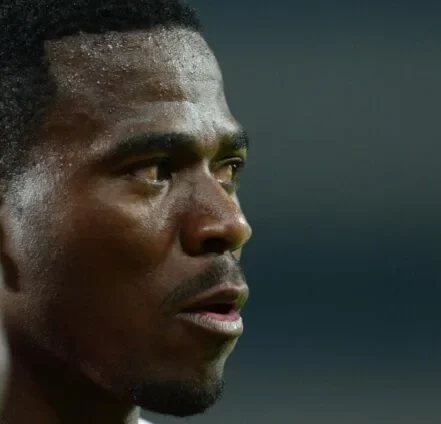Police officer Thabo Mosia took the stand again for cross-examination at the Senzo Meyiwa murder trial in the high court in Pretoria, shedding light on critical aspects of the crime scene investigation.
As the trial resumed on Thursday, the courtroom was gripped by Sipho Ramosepele’s incisive questioning of Mosia.
Mosia, who identified himself as the first investigative officer to arrive at the crime scene, provided insight into initial moments following the shooting of Senzo Meyiwa in Vosloorus.
Ramosepele asked about the number of photographs that Mosia took at the crime scene, to which he said he had captured eight pictures.
The court heard that he relied on his own observations to assess the crime scene, expecting the arrival of a task team for further processing.
Mosia emphasized that the primary objective of calling in the crime scene unit was to ensure thorough and meticulous processing of evidence.
“I used my eyes to search that place with the belief that the task team would later arrive and help with the processing of the crime scene,” said Mosia.
“The point of calling the crime scene was to ensure the crime scene was properly processed.”
Probing further, Ramosepele asked about the involvement of the provincial task team due to the high-profile nature of the case.
Mosia affirmed that the team’s specialised equipment was crucial for proper analysis. Of particular interest was the presence of bullet fragments at the crime scene.
Mosia also confirmed that he discovered only two bullet marks – one on the door and another on the tiled floor.
Ramosepele’s scrutiny delved into the scuffle that took place between the alleged intruders and the occupants of the house, including Meyiwa and his girlfriend Kelly Khumalo.
The discussion shifted to gunshot residue tests, which Mosia described as a method to trace powder spilled from a cartridge case after a gunshot.
Ramosepele aimed to establish whether such tests were conducted on the individuals who were present when Meyiwa was shot dead.
Mosia clarified that gunshot residue tests were typically performed under specific circumstances, such as suspicions of involvement in a crime.
However, he did not recall the test being administered to Meyiwa, unless it was a suicide case, he said.
“That [the test] is done under certain circumstances. If there are suspicions that one could have participated in the death of the person,” he said.
“I do not remember it being done on the victim. Unless it is a suicide case, then it would be conducted.”
The trial continues…
Follow @SundayWorldZA on Twitter and @sundayworldza on Instagram, or like our Facebook Page, Sunday World, by clicking here for the latest breaking news in South Africa.



